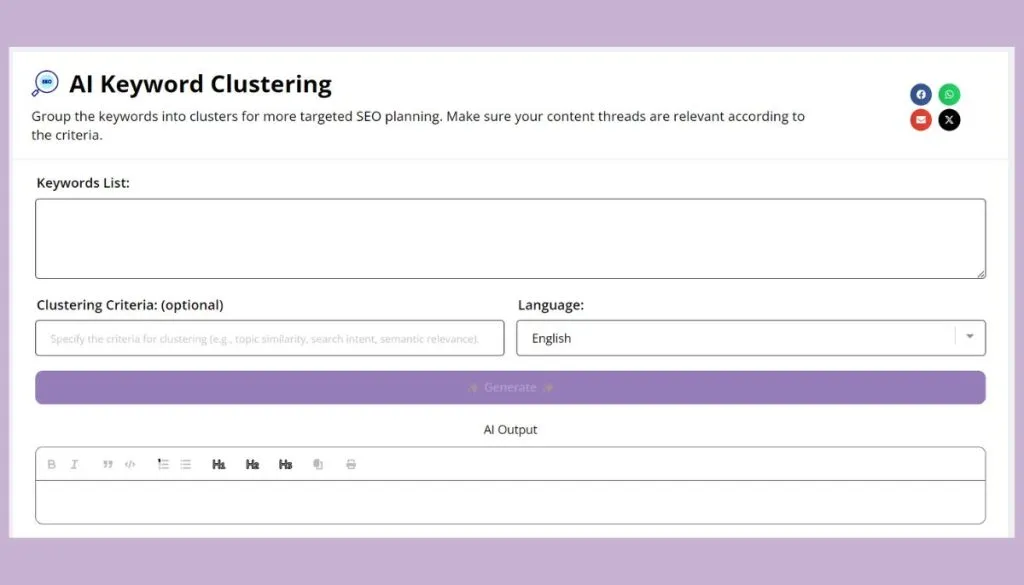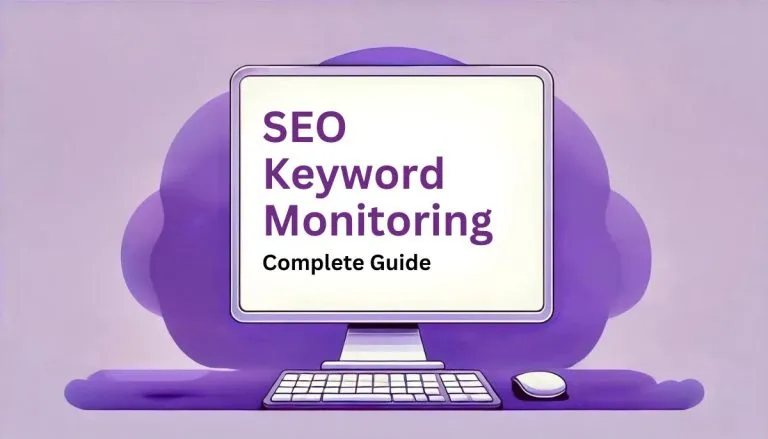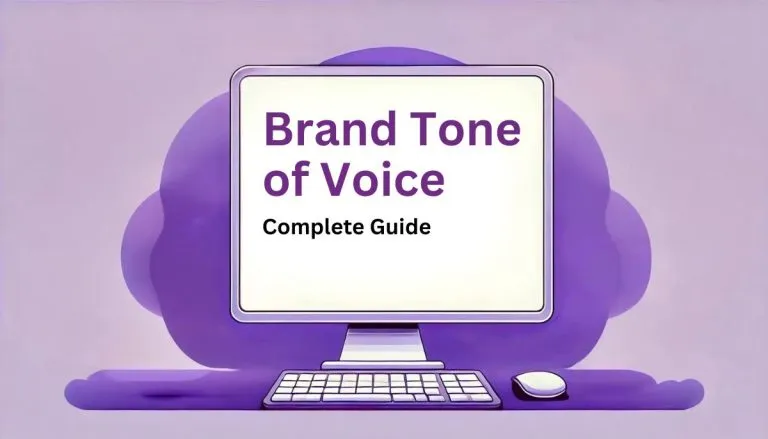In the ever-evolving world of search engine optimization (SEO), staying ahead of the competition requires innovative strategies and a deep understanding of search algorithms. One such strategy gaining traction is SEO keyword clustering. This approach allows marketers to create more comprehensive and targeted content, improving search engine rankings and enhancing user experience. In this article, we’ll explore what SEO keyword clustering is, why it’s important, and how to effectively implement it in your SEO strategy.
Understanding SEO Keyword Clustering
Keyword clustering is the practice of grouping similar keywords together based on their semantic relevance. Instead of optimizing a single page for one keyword, keyword clustering focuses on creating content that targets multiple related keywords within a specific topic. This strategy reflects how search engines, particularly Google, have shifted towards understanding the intent behind search queries rather than just matching keywords.
How Keyword Clustering Works
- Identify Core Topics: Start by identifying the core topics relevant to your business or niche.
- Generate Related Keywords: Use tools to find keywords related to these topics, considering variations, synonyms, and long-tail keywords.
- Group Keywords: Organize the keywords into clusters based on their semantic relationships and user intent.
- Create Content: Develop content that addresses the entire cluster, ensuring that it provides comprehensive coverage of the topic.
- Optimize Content: Use on-page SEO techniques to optimize the content for the keyword cluster, including headings, meta tags, and internal linking.
Why Keyword Clustering Matters
1. Improved Relevance and Authority
Keyword clustering helps establish topical authority by covering a subject comprehensively. This improves the content’s relevance to search queries and enhances the site’s authority in the eyes of search engines.
2. Enhanced User Experience
By providing thorough content that addresses multiple facets of a topic, keyword clustering improves user experience. Visitors find value in content that answers their questions and meets their needs, leading to longer engagement times and lower bounce rates.
3. Better Search Engine Rankings
Search engines favor content that demonstrates expertise and authority. By utilizing keyword clustering, you can improve your chances of ranking for multiple related queries, driving more organic traffic to your site.
4. Efficient Content Creation
Keyword clustering allows for efficient content planning and creation. By organizing keywords into clusters, you can identify gaps in your content strategy and develop targeted content that aligns with user intent.
5. Adaptability to Search Algorithm Changes
As search engines continue to prioritize user intent and semantic search, keyword clustering aligns with these algorithm changes. This adaptability ensures that your SEO strategy remains effective in the long term.
How to Implement Keyword Clustering
Implementing keyword clustering requires careful planning and execution. Here are the steps to successfully integrate keyword clustering into your SEO strategy:
1. Conduct Thorough Keyword Research
Use tools like Google Keyword Planner, Ahrefs, SEMrush, and Ubersuggest to identify a wide range of keywords related to your core topics. Consider both short-tail and long-tail keywords, as well as variations and synonyms.
2. Analyze User Intent
Understanding user intent is crucial for effective keyword clustering. Categorize keywords based on whether they indicate informational, navigational, transactional, or commercial intent. This categorization will guide your content creation efforts.
3. Group Keywords into Clusters
Organize your keywords into clusters based on their semantic relationships. Look for common themes and topics within the keywords and group them accordingly. Each cluster should represent a specific topic or subtopic that you want to cover comprehensively.
4. Develop Cluster Content
Create content that addresses each keyword cluster thoroughly. Ensure that the content provides value to users by answering their questions, solving their problems, or offering insights. Use a mix of text, images, videos, and other media to engage your audience.
5. Optimize On-Page SEO
Optimize your content for the keyword cluster by incorporating keywords naturally into headings, subheadings, meta tags, and body text. Use internal linking to connect related content and provide a seamless user experience.
6. Monitor Performance and Adjust
Track the performance of your keyword clusters using tools like Google Analytics and Search Console. Monitor metrics such as organic traffic, rankings, and engagement to assess the effectiveness of your strategy. Adjust your content and clusters based on performance data to continually improve your SEO efforts.
Keyword Clustering Examples
Keyword clustering involves grouping related keywords into clusters that target specific topics or themes within your content strategy. This approach helps improve search engine rankings by aligning content with user intent and covering a topic comprehensively. Here are some examples of keyword clustering for different industries:
Example 1: E-commerce
Primary Topic: Winter Jackets
Keyword Cluster:
- Best winter jackets for extreme cold
- Affordable winter jackets for men
- Stylish winter jackets for women
- Lightweight winter jackets for travel
- Waterproof winter jackets for snow
- Winter jackets with fur hoods
- Warmest winter jackets for skiing
- Winter jackets sale online
Description:
For an e-commerce store selling winter jackets, this cluster targets a variety of consumer needs and preferences, such as affordability, style, and specific use cases like skiing or travel. By covering these keywords, you can create product descriptions, buying guides, and promotional content that attracts a broad audience interested in winter outerwear.
Example 2: Food and Recipes
Primary Topic: Pancake Recipe
Keyword Cluster:
- Easy pancake recipe for beginners
- Best fluffy pancake recipe
- Vegan pancake recipe with almond milk
- Healthy pancake recipe with oats
- Gluten-free pancake recipe ideas
- Classic American pancake recipe
- Pancake recipe with banana
- Quick pancake recipe for kids
Description:
In the food and recipes niche, this cluster focuses on various types of pancake recipes, catering to different dietary preferences and cooking skills. By targeting these keywords, you can create blog posts, recipe videos, and cooking tips that appeal to a diverse audience seeking delicious and easy-to-make pancakes.
Example 3: Technology and Software
Primary Topic: AI Tools
Keyword Cluster:
- Best AI tools for business
- AI tools for data analysis
- AI tools for marketing automation
- AI tools for customer service
- Free AI tools for small businesses
- AI tools for content creation
- AI tools for developers
- AI tools for project management
Description:
For a tech company or blog focusing on AI tools, this cluster addresses various applications of artificial intelligence across different industries and tasks. By creating content around these keywords, you can provide valuable insights and recommendations for businesses and individuals looking to leverage AI technology in their operations.
Example 4: Digital Marketing
Primary Topic: PPC Advertising
Keyword Cluster:
- PPC advertising strategies for 2024
- Best PPC advertising platforms
- PPC advertising tips for small businesses
- How to create a successful PPC advertising campaign
- PPC advertising vs. SEO: Which is better?
- PPC advertising trends to watch
- Effective PPC advertising for e-commerce
- PPC advertising case studies
Description:
In the digital marketing niche, this cluster focuses on pay-per-click advertising, offering insights into strategies, platforms, and comparisons with other marketing channels. By targeting these keywords, you can create guides, tutorials, and case studies that help marketers optimize their PPC campaigns for better results.
Example 5: SEO and Content Marketing
Primary Topic: SEO Optimization
Keyword Cluster:
- SEO optimization techniques for beginners
- On-page SEO optimization best practices
- How to optimize your website for SEO
- SEO optimization tools for 2024
- SEO optimization tips for local businesses
- SEO optimization for mobile websites
- Advanced SEO optimization strategies
- SEO optimization checklist for new websites
Description:
For SEO agencies or content marketers, this cluster addresses various aspects of SEO optimization, from beginner techniques to advanced strategies. By covering these keywords, you can offer comprehensive content that guides businesses and individuals in improving their website’s search engine visibility and performance.

Recommended Tool: Writify.ai AI Keyword Clustering Tool
When it comes to optimizing your SEO strategy, using an efficient keyword clustering tool can make all the difference. One excellent option is the Writify.ai AI Keyword Clustering Tool, which offers powerful features to help you group related keywords for targeted SEO planning. Best of all, it’s completely free and requires no sign-up, making it accessible and easy to use for everyone.
Key Features of Writify.ai AI Keyword Clustering Tool
- Automatic Keyword Grouping:
The tool automatically groups related keywords into clusters based on semantic relevance and user intent, saving you time and effort in organizing your keyword strategy. - User-Friendly Interface:
With a simple and intuitive interface, Writify.ai’s tool allows users to quickly input their keyword list and receive organized clusters in just a few clicks. - No Sign-Up Required:
You can start using the tool immediately without any registration or sign-up process. This feature ensures a hassle-free experience for users who want quick results. - Free to Use:
The tool is completely free, making it a great resource for small businesses, marketers, and individuals looking to enhance their SEO efforts without incurring additional costs. - Optimized for SEO Strategy:
By grouping keywords effectively, the tool helps you create content that aligns with search engine algorithms and user search behavior, improving your chances of ranking higher in search results.
How to Use the Writify.ai AI Keyword Clustering Tool
- Visit the Tool Page:
Access the tool by visiting Writify.ai AI Keyword Clustering Tool. - Input Your Keywords:
Enter a list of keywords related to your content or industry into the provided input field. - Generate Clusters:
Click on the button to generate keyword clusters. The tool will analyze and group your keywords based on their semantic relevance. - Review and Implement:
Review the generated clusters and use them to inform your content creation and SEO strategies.
More Tools to Improve Working with SEO Clusters
Implementing SEO keyword clustering can be challenging without the right tools to assist in research, organization, and analysis. Here are some of the best tools available to help you improve your work with keyword clusters:
1. Ahrefs
- Description: Ahrefs is a comprehensive SEO tool that offers keyword research, backlink analysis, and competitor insights. It helps identify related keywords and organizes them into clusters for targeted content creation.
- Features:
- Keyword Explorer for discovering relevant keywords
- SERP analysis to understand ranking opportunities
- Competitor analysis to identify content gaps
- Keyword difficulty and search volume metrics
- How It Helps: Ahrefs allows you to identify high-potential keywords and organize them into clusters, helping you create targeted content that aligns with user intent.
2. SEMrush
- Description: SEMrush is a versatile SEO platform that provides keyword research, site audits, and competitive analysis. It offers a dedicated feature for creating keyword clusters and developing content strategies.
- Features:
- Keyword Magic Tool for generating keyword ideas
- Topic Research for discovering content opportunities
- SEO Content Template for optimizing content based on clusters
- Competitive analysis and gap analysis
- How It Helps: SEMrush simplifies the process of keyword clustering by providing insights into related keywords, trends, and opportunities for content creation.
3. Google Keyword Planner
- Description: Google Keyword Planner is a free tool within Google Ads that helps identify relevant keywords and their search volumes. It’s an excellent starting point for building keyword clusters.
- Features:
- Keyword ideas and search volume data
- Historical statistics and keyword trends
- Bid estimates for paid search campaigns
- How It Helps: Google Keyword Planner provides essential data for keyword clustering, enabling you to identify high-potential keywords and trends.
4. Keyword Insights
- Description: Keyword Insights is a tool specifically designed for keyword clustering. It automates the process of grouping keywords based on intent and semantic relationships, making it easy to develop targeted content strategies.
- Features:
- Automated keyword clustering
- Analysis of search intent and semantic relationships
- Content strategy suggestions based on clusters
- How It Helps: Keyword Insights streamlines the clustering process by automatically grouping keywords and providing insights into content opportunities.
5. LSIGraph
- Description: LSIGraph is a tool that focuses on identifying latent semantic indexing (LSI) keywords, which are closely related to your primary keywords. These keywords are ideal for creating keyword clusters.
- Features:
- LSI keyword suggestions
- Relevance scores for each keyword
- Competitor analysis for LSI keywords
- How It Helps: LSIGraph helps you discover semantically related keywords, enhancing your keyword clusters and content relevance.
6. ClusterAI
- Description: ClusterAI is a tool designed specifically for keyword clustering, automating the grouping process based on search intent and semantic relationships.
- Features:
- Automated keyword clustering
- Search intent analysis
- Suggestions for content optimization
- How It Helps: ClusterAI simplifies the keyword clustering process, making it easy to organize keywords and develop content strategies that align with user intent.
FAQ: SEO Keyword Clustering
SEO keyword clustering is the practice of grouping related keywords based on their semantic relevance and user intent. It involves creating content that targets multiple related keywords within a specific topic to improve search engine rankings and enhance user experience.
Keyword clustering is important because it helps establish topical authority, improves content relevance, enhances user experience, and boosts search engine rankings. It aligns with modern search algorithms that prioritize user intent and semantic search.
To create a keyword cluster, start by conducting keyword research to identify related keywords. Analyze user intent and group keywords into clusters based on their semantic relationships. Each cluster should represent a specific topic or subtopic that you want to cover comprehensively.
Several tools can assist with keyword clustering, including Ahrefs, SEMrush, Google Keyword Planner, and ClusterAI. These tools provide keyword suggestions, analysis, and insights to help identify and group keywords effectively.
Traditional keyword targeting focuses on optimizing content for a single keyword, while keyword clustering involves optimizing content for multiple related keywords within a topic. Clustering reflects the shift towards understanding user intent and providing comprehensive content that addresses various search queries.
Yes, keyword clustering can improve SEO performance by increasing search engine rankings, driving more organic traffic, and enhancing user engagement. It helps establish authority and relevance, leading to better visibility in search results.
Common mistakes include focusing on quantity over quality, ignoring user intent, keyword stuffing, neglecting to update clusters, and failing to analyze competitors. Avoid these pitfalls by prioritizing high-quality content, understanding search intent, and continually refining your strategy.
Conclusion
SEO keyword clustering is a powerful strategy for improving search engine rankings, enhancing user experience, and establishing topical authority. By grouping related keywords and creating comprehensive content, businesses can better align with search engine algorithms and user intent. Implementing keyword clustering requires careful planning, but the benefits in terms of increased organic traffic and improved SEO performance make it a worthwhile investment for any business looking to succeed in the digital landscape. Utilizing the right tools can significantly enhance your ability to create effective keyword clusters and optimize your SEO strategy.







